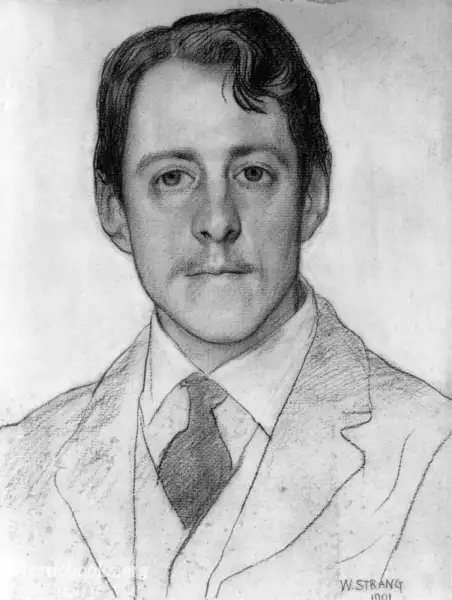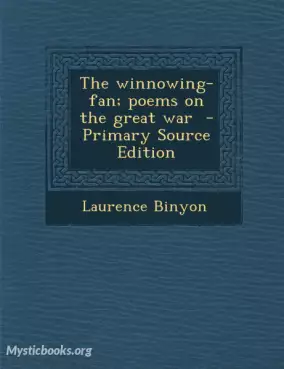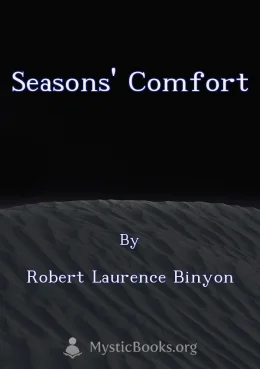
Timeline
Title
Country/Nationality
Robert Laurence Binyon
Robert Laurence Binyon was an English poet, dramatist and art scholar. Born in Lancaster, England, his parents were Frederick Binyon, a clergyman, and Mary Dockray. He studied at St Paul's School, London and at Trinity College, Oxford, where he won the Newdigate Prize for poetry in 1891. He worked for the British Museum from 1893 until his retirement in 1933. In 1904 he married the historian Cicely Margaret Powell, with whom he had three daughters, including the artist Nicolete Gray.
Laurence Binyon was born in Lancaster, Lancashire, England. His parents were Frederick Binyon, a clergyman of the Church of England, and Mary Dockray. Mary's father, Robert Benson Dockray, was a main engineer of the London and Birmingham Railway. His forebears were Quakers.
Binyon studied at St Paul's School, London. Then he read Classics (Honour Moderations) at Trinity College, Oxford, where he won the Newdigate Prize for poetry in 1891.
Immediately after graduating in 1893, Binyon started working for the Department of Printed Books of the British Museum, writing catalogues for the museum and art monographs for himself. In 1895 his first book, Dutch Etchers of the Seventeenth Century, was published. In that same year, Binyon moved into the Museum's Department of Prints and Drawings, under Campbell Dodgson. In 1909, Binyon became its Assistant Keeper, and in 1913, he was made the Keeper of the new Sub-Department of Oriental Prints and Drawings. Around then, he played a crucial role in the formation of Modernism in London by introducing young Imagist poets such as Ezra Pound, Richard Aldington and H.D. to East Asian visual art and literature. Many of Binyon's books produced at the museum were influenced by his own sensibilities as a poet although some were works of plain scholarship, such as his four-volume catalogue of all of the museum's English drawings and his seminal catalogue of Chinese and Japanese prints.
After the war, he returned to the British Museum and wrote numerous books on art, in particular on William Blake, Persian art, and Japanese art. His work on ancient Japanese and Chinese cultures offered strongly-contextualised examples that inspired, among others, the poets Ezra Pound and W. B. Yeats. Binyon's work on Blake and his followers kept alive the then nearly-forgotten memory of the work of Samuel Palmer. Binyon's duality of interests continued the traditional interest of British visionary Romanticism in the rich strangeness of Mediterranean and Oriental cultures. In 1931, his two-volume Collected Poems appeared. In 1932, Binyon rose to be the Keeper of the Prints and Drawings Department, but in 1933, he retired from the British Museum. He went to live in the country at Westridge Green, near Streatley, Berkshire, where his daughters also came to live during the Second World War, and he continued to write poetry.
In 1933–1934, Binyon was appointed Norton Professor of Poetry at Harvard University. He delivered a series of lectures on The Spirit of Man in Asian Art, which were published in 1935. Binyon continued his academic work. In May 1939, he gave the prestigious Romanes Lecture in Oxford on Art and Freedom, and in 1940, he was appointed the Byron Professor of English Literature at University of Athens. He worked there until he was forced to leave, narrowly escaping the German invasion of Greece in April 1941 . He was succeeded by Lord Dunsany, who held the chair in 1940–1941.
Binyon had been friends with Pound since around 1909, and in the 1930s, the two became especially close; Pound affectionately called him "BinBin" and assisted Binyon with his translation of Dante. Another protégé was Arthur Waley, whom Binyon employed at the British Museum.
Books by Robert Laurence Binyon

The Winnowing Fan: Poems On The Great War
This little gem of a book contains twelve poems about World War I. There is more to it than its intrinsic value as verse. Edward Elgarset three of the poems (The Fourth Of August, To Women, For The Fallen) in his cantata The Spirit of England Since i...

Seasons' Comfort
'Seasons' Comfort by Robert Laurence Binyon is a collection of essays and reflections on the passing of time and the cyclical nature of life. Binyon, known for his elegiac poetry, explores themes of beauty, change, and the inevitable journey towards...